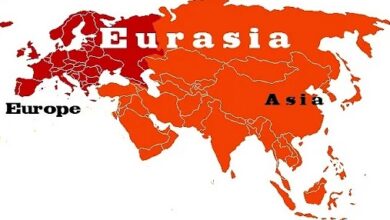What is Divinity Etymology Concept in Christianity
Divinity
Divinity is understood as the quality or condition of the divine. Existence, nature and divine inherence of the supreme being of God and for being omnipresent. It is said of any divine, celestial being or that has the divine characteristic or of some gods of any religion. Person or element that has enough beauty.
Etymology
Origin, history or formation
This vocabulary etymologically comes from the adjective “divine” and the abstract suffix “idad” that indicates quality of, it is also composed of the Latin “divinĭtas”.
Concept
Divinity is a supernatural being , with superior capabilities and beyond understanding, of natural origin from another deity; whose image is often taken as similar to that of man. Worshiped , this being holy , divine or sacred , and/or respected by human beings . Typically, deities are perceived as superior to human beings, controlling or being superior to nature itself .
Deities take on a variety of forms, but are often anthropomorphic or zoomorphic. A deity can be male, female, hermaphrodite, or neuter, but is usually immortal .
Sometimes, deities are identified with elements or phenomena of nature, human virtues or vices or even activities inherent to human beings in references of a mythological nature .
Furthermore, it is usual for a certain deity to preside over aspects of man’s daily life, such as birth , death , time , destiny , etc.
in Christianity
God in Christianity is the doctrine about God , the divine being who created and governs the world, according to Christianity . He is manifested in three different personalities: as Father , as Son , and as Spirit . The Triune God is believed to have different attributes , including love, the most important of all (I John 4:8) and thus manifested by Paul in I Corinthians 13 ), Omnipotence , Omniscience , Omnipresence , Holiness, Truth (John 14:16), Justice and Faithfulness.
Christians believe that God is spirit (John 4:24), uncreated, omnipotent , and eternal. The creator is the sustainer of all things, who redeems the world through his Son, Jesus Christ . Against this background, belief in the divinity of Christ and the Holy Spirit is expressed as the doctrine of the Holy Trinity , which describes a single divine “substance” already existing as three distinct and inseparable persons: the Father , the Son ( Jesus Christ ), and the Holy Spirit (1 John 5:7). According to this doctrine, God is not divided, in the sense that each person has a third of all, but rather, each person is considered to be fully God (cf. Perichoresis ). The distinction lies in their relationships.
historical view
Historically, it is not possible to define which tribe was the first to manifest an idea of divinity. The first of these conceptions would have emerged in the Paleolithic and Neolithic periods , and would have been manifested by the human feeling of a bond with the Earth and with Nature , cycles and fertility. However, the oldest writings found so far refer to the concepts coming from the Sumerian , Vedic and Egyptian religions , which appeared around 3600 BC .
In order to create explanations for the existence of the elements and beings of nature, as well as to understand the meaning of natural phenomena (the storm, the wind, day and night, the seasons, etc.), the peoples and tribes of antiquity conceived several deities that, more often than not, began to have feelings and emotions identical to those of humans. From there derived the rituals, ceremonies and sacrifices, which had the objective of thanking the blessings sent by these deities or appeasing their wrath, which punished humanity with some calamity.

